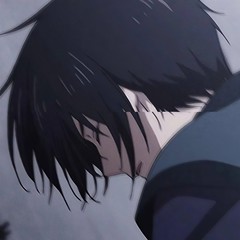Ramones
从1974年组成到1996年解散,经历了二十二年的长路远征,毋庸置疑的RAMONES事实上最历史悠久,最长寿的PUNK ROCK乐队,但不要忘记,RAMONES也是最早出现在乐坛上的PUNK ROCK队伍,在这个双重意义下,才是他们最难能可贵之处. 姑且无论早年曾有过THE STOOGES或THEWHO这些获誉为PROTO PUNK的乐队存在,但RAMONES才是摇滚式上第一队开宗明义的PUNK ROCK乐队;三个CHORD的简约摇滚曲式,短小精悍的平均不超过两分钟的歌曲长度,急激快板的节奏,嘈噪的吉他声,口号似的歌唱,YOBBISH的态度,简单的黑白唱片封套设计,只花雕了六千二百美元的唱片制作成本,在他们与76年发表的首张同名专辑里已标志着这种PUNK ROCK之蓝本. 而他们永远是皮褛加窄身牛仔裤加冬菇式长发的打扮,亦俨如成为乐队别树一帜的标记.RAMONES的出现促使了纽约市的PUNK SCENE的形成,被公认为纽约崩坛头号乐队的他们,那仿佛是继THE VELVET UNDERGROUD后埋藏在地下音乐圈的另一颗炸弹.早年发迹且活跃于纽约市曼克顿区BOWERY STREET之表演场地CBGB的RAMONES (他们曾是CBGB的驻场乐队),便在当年联同TELEVISION,PATTI SMITH GROUP,BLONDIE,THE DEAD BOYS,TALKING HEADS等队缔造了这块传奇性纽约崩乐胜地.甚至笔者所收集到的一套摄制与78年的CBGB纪录片,便更实行以RAMONES的成名作BLITZKRIEG BOP为标题,可见他们之代表性.然而RAMONES之影响力不独在于美国本土上,他们的启蒙性甚至被视为英国PUNK MOVEMENT之源头----乐队在76年7月首次登陆英伦,于伦敦ROUNDHOUSE之演出,正式触发起英伦PUNK MOVEMENT衍生的历史性时刻,随即冒起的SEX PISTOLS,THE CLASH,BUZZCOCKS等乐队身上都不难找到源自RAMONES的熏陶.在近期于UNCUT杂志的访问中,JOEY RAMONE便不讳言的说:"RAMONES触发了PUNK的开始,当我出道时我想我们是世上最积极的乐队,是PUNK MOVEMENT的蓝本,是MALCOLM MCLAREN取材的源头,我犹记得我听闻达一个说法是SEX POSTOLE表示过:'我们希望做出犹如RAMONES的声音.'即使JOE STRUMMER也说过THE CLASH是听着RAMONESDE唱片下学习弹奏音乐的".RAMONES影响着英国PUNK SCENE的爆发,然后英国则令PUNK变成一股一发不可收拾的音乐文化革命.PUNK ROCK的出现是因为一种年轻乐队认为那些是七十年代的恐龙级/大使级摇滚乐太高不可攀,从而锐意重拾回ROCK 'N' ROLL最原始基本的音乐精神,RAMONES亦是如此.本身热衷于六十年代摇滚乐的他们,RAMONES的音乐风格其实是改良自早在六十年代初期的ROCK 'N' ROLL根源曲式,只是他们透过粗犷,吵杂,急激而不修饰的手法演奏出来.同时亦带出了犹如60'S-POP于SURF-POP般的快板节奏,JOEY的主唱曲调往往是以调子流畅押韵见称,加上他们在歌词见透过虚无主义的笔触下所流露出的黑色幽默题材,RAMONES的音乐所予人是绝对愉快的聆听经验,亦开启了所谓PUNK-POP的门户.乐队在76年至78年间所发表的四张专辑:RAMONES,LEAVES HOME,ROCKET TO RUSSIA和ROAD TO RUIN,都是他们最典范的作品,像BLITZKRIEG BOP,JUDY IS A PUNK,PINHEAD,SHEENA IS A PUNK RICKER,ROCKAWAY BEACH,I WANNA BE SEDATED,SUZY IS A HEADBANGER等RAMONES的"国歌",便是这个时期的作品,到了九十年代,像GREEN DAY,RANCID,THE OFFAPRING等西岸PUNK POP巨星,便显然是承袭了与仿效着RAMONES的乐风而来.此外,在日本大阪市,有"女版REAMONES"之称的SHONEN KNIFE;在北京,也有大唱<<你是我的雷蒙斯>>的新裤子. 来自纽约市皇后区的RAMONES,也由歌手RAMONE(原名JEFFEY HYMAN),吉他手JONNY RAMONE(原名JOHN RCUMMINGS)和鼓手TOMMY ROMONE,低音吉他手DEE DEE RAMONE(原名DOUGLAS COLVIN)作构成的阵容最为原装.其实原先他们是一队只有JOEY,JOHHY和DEE DEE三人的乐队, 而TOMMY则是其经理人,后来经过执位后才变成这个RAMONES的经典阵容.但像每一队历史悠久的乐队般,RAMONES亦饱尝成员进进出出的经历,尤以鼓手的位置最不稳定.在77年的ROCKET TO RUSSIA后,TOMMY便离队变成乐队的间歇性唱片监制,鼓手空缺由来自VOIDOIDS的MARKY RAMONE补上;在乐队于83年发表过第七张大碟SUBTERRNEAN JUNGLE后,MARKY一度退出,鼓手位置便由RICHIE RAMONE取代;但合作了三张专辑后,RICHIE有为之告辞,虽然空缺曾由BLONDIE的CLEM BURKE取代;但最后还是由MARKY归队补上,而低音吉他的DEE DEE亦在89年的BRAIN DRAIN专辑后离队,并化名为DEE DEE KING作个人发展(曾出版过一张声名狼藉的RAP MUSIC唱片),由CJ RAMONE(原名CHRISTOPHER JOHN WARD)取代他的位置,直至最后因JOEY亦有意离队,乐队便做出了解散的决定.在乐坛上屹立了二十多载,纵使RAMONES仍一直把持着鲜明的PUNK ROCK的旗帜,但却不代表他们是一队一成不变的乐队.队员的替换跟不同的唱片监制合作,仍往往令RAMONES的每张专辑能出现或多或少的不同.MARKY加入后所发表的ROAD TO RUIN不但在音乐质感上有所提升,连歌曲长度也相对地增加,成为他们首张超过半小时长度的专辑;由PHIL SPECTOR监制的第五张专辑END OF THE CENTURY让他们重拾回60'S POP的根源,也是他们最富装饰性的一张唱片;81年PLEASANT DREAMS由英国乐队10CC成员GRAHAM监制下,令他们的手法倾向重型,唯独一曲WE WANT THE AIRWAVES却流露了多少NEW WAVE式倾向.83年的SUBTERRANEAN JUNGLE时的两位监制RITCHIE CORDELL和GLEN KOKOTKIN是生产P0WER POP的美国独立唱片品牌BESERKLEY之创办人,故此也令他们重投PUNK的原始张力;在84年TOO TOUGH TO DIE里既可看到他们对西岸的HARDCORE SCENE作回想(ENDLESS VACATION),也显示了一种POST-PUNK的低调趋向(I'M NOT AFRAID OF LIFE),而碟内由EURYTHMICS成员DAVE STEWART监制的HOWING AT THE MOON则是他们向电气化NEW WAVE曲式作探讨之意图;甚至乎连前卫乐手BILL LASWELL,也曾为他们在BRIAN DARAIN(89年)是时期为乐队监制过I BELIEVE IN MIRACLES这首平平无奇之作.当然,RAMONES所为人津津乐道的典故还有他们在80年代带来过ROCK 'N' ROLL HIGH SCHOOL这套B级电影,而他们另一次跟电影扯上关系,便是89年为STEPHEN KING的电影PET SEMATARY撰写主题曲. HEY HO LET'S GO!(名字取自BLITZKRIEG BOP内的一句口号)这张ANTHOLOGY专辑是对ROAMONES二十多年来的音乐历程做出的总结.八十多页厚的书册正记载了乐队的历史故事与珍贵照片,而双CD内所选辑的五十八首作品,那几乎集齐所有RAMONES的代表作,然而也倒有一些漏网之鱼,像欠缺了SUZY IS HEADBANGER和用作炮轰里根总统的BONZO GOES TO BITBERG,便总有多少美中不足. 有人说过PUNK ROCK乐队只能是昙花一现,每每总会随着青春的消逝而终结.但RAMONES在二十年来却能矢志不渝的坚守着PUNK ROCK的态度,从没有像主流妥协也没有变质,他们在乐队的告别专辑ADIOS AMIGOS里重玩TOM WAITS的I DON'T WANNA GROW UP,你会发觉是那么寓意深刻. The Ramones are the first punk rock band. Other bands, such as the Stooges and the New York Dolls, came before them and set the stage and aesthetic for punk, and bands that immediately followed, such as the Sex Pistols, made the latent violence of the music more explicit, but the Ramones crystallized the musical ideals of the genre. By cutting rock & roll down to its bare essentials — four chords; a simple, catchy melody; and irresistibly inane lyrics — and speeding up the tempo considerably, the Ramones created something that was rooted in early 60s, pre-Beatles rock & roll and pop but sounded revolutionary. Since their breakthrough was theoretical as well as musical, they comfortably became the leaders of the emerging New York punk rock scene. While their peers such as Patti Smith, Television, Talking Heads, and Richard Hell all were more intellectual and self-consciously artistic than the Ramones, they nevertheless appealed to the same mentality because of the way they turned rock conventions inside out and celebrated kitschy pop culture with stylized stupidity. The bands first four albums set the blueprint for punk, especially American punk and hardcore, for the next two decades. And the Ramones themselves were major figures for the next two decades, playing essentially the same music without changing their style much at all. Although some punk diehards — including several of their peers — would have claimed the bands long career wound up undercutting the ideals the band originally stood for, the Ramones always celebrated not just the punk aesthetic, but the music itself. Based in the Forest Hills section of Queens, NY, the Ramones formed in 1974. Originally, the band was a trio consisting of Joey Ramone (vocals, drums; born Jeffrey Hyman, May 19, 1951), Johnny Ramone (guitar; born John Cummings, Oct. 8, 1951), and Dee Dee Ramone (bass; born Douglas Colvin, Sept. 18, 1952), with Tommy Ramone (born Tom Erdelyi, Jan. 29, 1952) acting as the groups manager. All of the groups members adopted the last name Ramone and dressed in torn blue jeans and leather jackets, in homage to 50s greaser rockers. The group played their first concert on March 30, 1974, at New Yorks Performance Studio. Two months after the show, Joey switched to vocals and Tommy became the bands drummer. By the end of the summer, the Ramones earned a residency at CBGBs. For the next year, they played regularly at the nightclub, earning a dedicated cult following and inspiring several other artists to form bands with similar ideals. All of the Ramones sets clocked in at about 20 minutes, featuring an unrelenting barrage of short, barely two-minute songs. By the end of 1975, the Ramones secured a recording contract with Sire; discounting Patti Smith, they were the first New York punk band to sign a contract.Early in 1976, the Ramones recorded their debut album for just over 6,000 dollars. The resulting album, Ramones, was released in the spring, gained some critical attention, and managed to climb to 111 on the U.S. album charts. On July 4, the band made their debut appearance in Britain, where their records were becoming a big influence on a new generation of bands. Throughout 1976, the Ramones toured constantly, inaugurating nearly 20 years of relentless touring. By the end of the year, the group released their second album, Ramones Leave Home. While the album just scraped the U.S. charts, Leave Home became a genuine hit in England in the spring of 1977, peaking at number 48. By the summer of 1977, the Sex Pistols and the Ramones were seen as the two key bands in the punk rock revolution, but where the Pistols imploded, the Ramones kept on rolling. Following the U.K. Top 40 hit Sheena Is a Punk Rocker, the Ramones released their third album, Rocket to Russia, in the fall of 1977. Tommy Ramone left the band in the spring of 1977, although he produced the groups subsequent album. He was replaced by former Voidoid Marc Bee, who immediately changed his name to Marky Ramone. With their new drummer in place, the Ramones recorded their fourth album, Road to Ruin, which was released in the fall. Road to Ruin marked the bands first significant attempt to change their sound; not only were there stronger bubblegum, girl group, surf, and 60s pop influences on the music, it was the first of their albums to run over a half hour. Although their sound was more accessible, it didnt gain the band a noticeably larger following. Neither did Rock N Roll High School, the 1979 Roger Corman film in which the Ramones had a pivotal part. The soundtrack to Rock N Roll High School and the U.K.-only live album Its Alive were the bands only releases of 1979. For most of the year, they were in the studio recording their fifth album with legendary 60s pop producer Phil Spector. The title song to the Corman movie was the first track released from the sessions, although the soundtrack album did feature a number of older Ramones songs remixed by Spector. End of the Century, the Spector-produced Ramones album, finally appeared in January of 1980 to mixed reviews. Despite the lukewarm reception to the album, the records cover of the Ronettes Baby I Love You became their only Top Ten British hit; in America, none of the singles made an impact, although the record became their biggest hit, peaking at number 44. The Ramones continued their attempts at crossover success with their sixth album, Pleasant Dreams, which was released in 1981. Featuring a production by former Hollies and 10cc member Graham Gouldman, the record was a commercial disappointment in both America and England. The band was relatively quiet during 1982, spending most of their time touring. In the spring of 1983, the band returned with Subterranean Jungle, which was produced by Ritchie Cordell and Glen Koltkin, the heads of the American indie label Beserkley Records. Not only did Subterranean Jungle fail to gain the band the larger audience they desired, it continued the erosion of the bands diehard fan base, as well as their decline in the eyes of many rock critics. Following the albums release, Marky Ramone left the band; he was replaced by Richard Beau, a former member of the Velveteens, who changed his name to Richie Ramone. With 1984s Too Tough to Die, the Ramones delivered a belated response to Americas burgeoning hardcore punk scene that was largely produced by Tommy Erdelyi. The album helped restore their artistic reputation, as did the 1985 single, Bonzo Goes to Bitburg, an attack on President Ronald Reagans 1985 visit to Germany. Instead of continuing with the sound of Too Tough to Die, the Ramones began pursuing a more streamlined, stylized, and conventional take on their songwriting formula with 1986s Animal Boy. This was a direction the group followed for the remaining ten years of their career. Following the release of 1987s Halfway to Sanity, Richie Ramone left the band and Marky Ramone re-joined the group. In 1988, the career retrospective Ramones Mania appeared. In 1989, the Ramones contributed the theme song to the Stephen King movie Pet Semetary, and the track was included on Brain Drain, which was released in the summer of that year. After its release, the groups bassist, Dee Dee Ramone, left the band to pursue a career as a rapper called Dee Dee King; after his debut rap recording failed miserably, he formed the band Chinese Dragons. Dee Dee was replaced by C.J. Ramone (born Christopher John Ward). In the early 90s, the Ramones sobered up, with both Joey and Marky undergoing treatment for alcoholism. The band returned to recording in 1992, first releasing the live Loco Live and then Mondo Bizarro, their first studio album in three years. Mondo Bizarro turned out to be a commercial failure, as did their 1994 covers album, Acid Eaters. Following the release of Acid Eaters, the mainstream guitar rock audience in America finally embraced punk rock, in the form of young bands like Green Day and the Offspring. Sensing that the climate may have been right for the crossover success they had desired for so many years, the Ramones immediately followed Acid Eaters with Adios Amigos, claiming that unless the new album sold in substantial numbers, the band would call it quits after a final farewell tour. Adios Amigos only spent two weeks in the charts. Nevertheless, the Ramones embarked on a long farewell tour that ran throughout the rest of 1995. The band was set to split in the beginning of 1996 when they were offered a slot on the sixth Lollapalooza, and they toured with the festival that summer. Following the completion of the tour, the Ramones parted ways, 20 years after the release of their first album. Just a few years later, Joey Ramone passed away on April 15, 2001, at age 49, the victim of lymphoma. Little more than a year after Joeys death, Dee Dee Ramone was found dead in his home in Los Angeles on June 5, 2002. Johnny Ramone passed away two years later on September 15, 2004 after a long battle with cancer.


 Blitzkrieg Bop (Single Version) - Ramones
Blitzkrieg Bop (Single Version) - Ramones


























![[STATION] aespa《Dreams Come True》MV Teaser - aespa (에스파)](https://img2.kuwo.cn/wmvpic/324/79/54/2120387380.jpg?imageView2/1/w/195/h/130/format/jpg/q/60)





